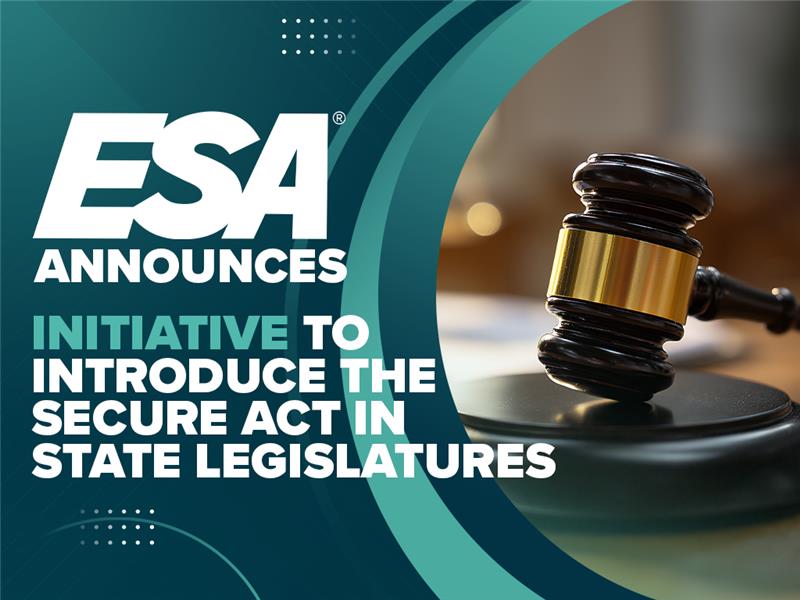The Telephone Consumer Protection Act (TCPA) was enacted in 1991 at the dawn of the internet and technology age and was written to provide consumers with certain protections as they related to “robocalls” using automatic telephone dialing system or “autodialers.” This legislation also created the familiar “Do Not Call” (DNC) registry where consumers can opt out of most telemarketing calls to their landline or mobile phone. However, through all the dense regulations and requirements placed on companies that try to comply with the DNC, stiff civil penalties await those who may unknowingly be violating the TCPA. Some of these stiff penalties could and have impacted alarm companies. The Telephone Consumer Protection Act (TCPA) was enacted in 1991 at the dawn of the internet and technology age and was written to provide consumers with certain protections as they related to “robocalls” using automatic telephone dialing system or “autodialers.” This legislation also created the familiar “Do Not Call” (DNC) registry where consumers can opt out of most telemarketing calls to their landline or mobile phone. However, through all the dense regulations and requirements placed on companies that try to comply with the DNC, stiff civil penalties await those who may unknowingly be violating the TCPA. Some of these stiff penalties could and have impacted alarm companies.
While most attention by the FCC and Congress is focused on the millions of fraudulent and unwanted robocalls made to landline and mobile phones in complete violation of the TCPA through call “spoofing” (a method that shields the actual identity of the caller), alarm companies must be aware of provisions with the TCPA that could expose their legitimate business practices to potential liability.
The FCC issued a ruling in 2015 that outlines the conditions for autodialer use. In the alarm industry, autodialers for text messages or phone calls come into play with routine calls, such as service appointment reminders, trouble signal notifications, payment reminders, event announcements and other “non-marketing” purposes. While there is nothing fraudulent or intrinsically wrong with using autodialers for this purpose, the TCPA is a “strict liability statute” meaning that violations are strictly enforced when violations do occur and the fines ($500 per occurrence) are strictly enforced. When the calls are used in a manner the FCC has previously ruled violate the TCPA, the liability can quickly build. There is also no obligation on the recipient of the calls to “opt-out” or request the calls stop, so the potential liability can quickly build for lawsuit happy consumers.
One recent example involved the case of an elderly couple with an alarm system who identified their son as a secondary contact for the call list provided to the alarm company in the event there was a trouble or alarm signal. Consequently, the son began receiving numerous autodialed calls from the alarm company and after receiving several dozen such calls, he contacted an attorney who promptly filed suit for the “violation” of the TCPA. The reason was that the son never provided “express written consent” for the calls and the alarm company had no documentation that it ever sought or received consent from the son to make calls.
There are law firms that specifically target consumers as plaintiffs for potential violations of the TCPA and many types of businesses that use autodialers are subject to these class action suits, especially if they use autodialers for telemarketing purposes. But, it does not take a large telemarketing campaign to garner the attention of potential plaintiffs. One recent case against a large monitoring company was dismissed by the court, filed by a plaintiff who has 85 previous suits for alleged TCPA violations.
A recent Federal Court of Appeal ruling set aside portions of the 2015 FCC rules regarding the TCPA and the FCC has responded with a Notice for Proposed Rulemaking to address the issues raised in the court ruling (ACA International v. FCC). The proposed rules will likely re-define what constitutes an autodialer, how to treat reassigned numbers and how a called party may revoke prior express consent to receive robocalls. It is unclear if any of the pending changes will alter the legal landscape for alarm companies that use autodialers for business and non-marketing purposes, but some general guidelines all companies should follow as best practices for staying in compliance with the TCPA are:
Obtain express consent for every number that could potentially be dialed for any reason and document that consent.
If using text messages, get “opt-in” consent prior to sending text messages.
Consult legal counsel when in doubt about autodialer use and what constitutes an exception to TCPA provisions.




